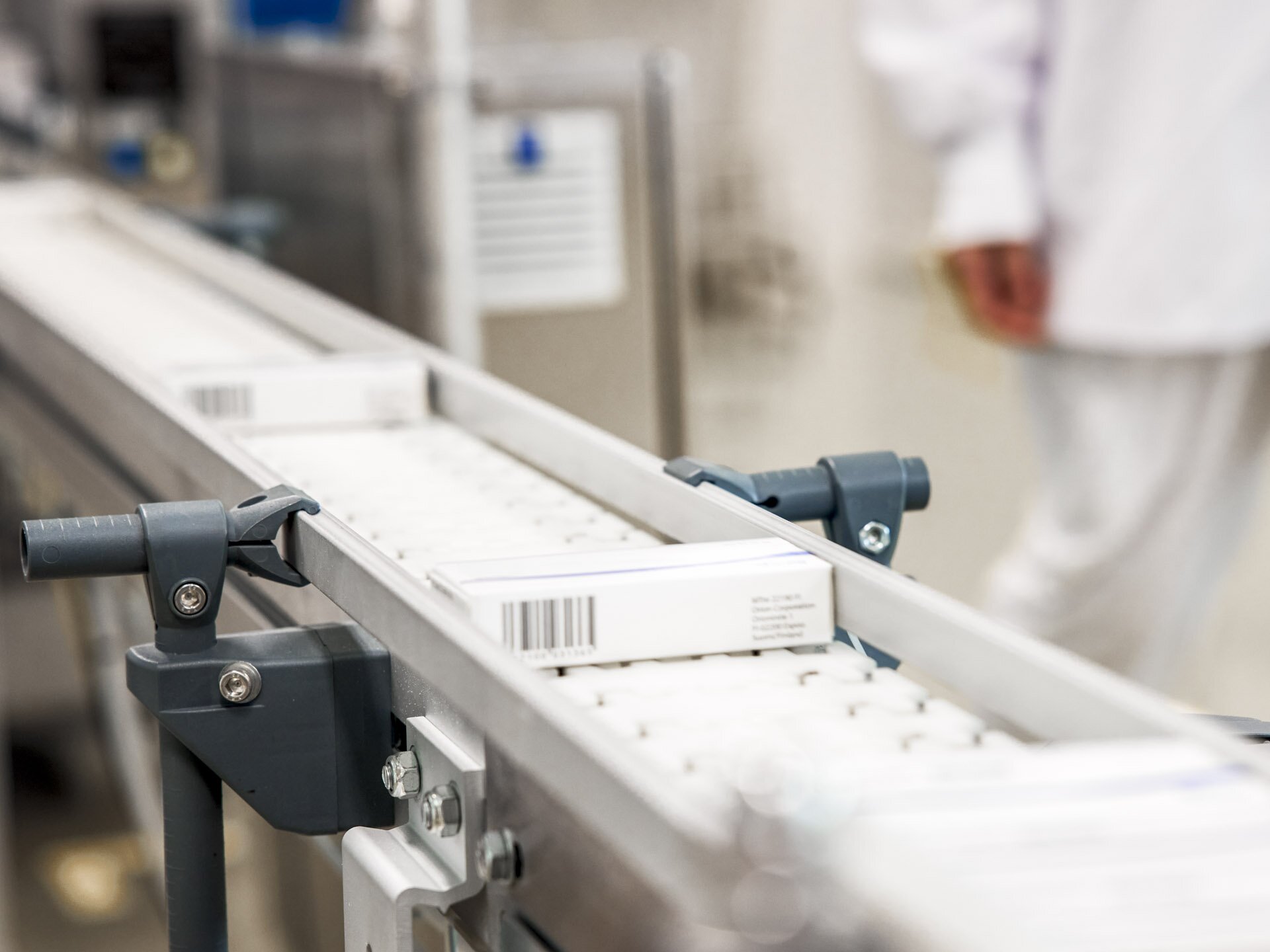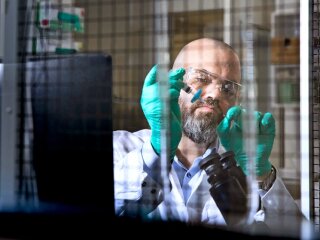“If I can be part of the solution that improves the quality of life for people with chronic pain, so that, for example, they regain their capacity to work, that is quite amazing,” says Liisa Ailanen, Senior Scientist in Orion’s Pain Research team.
Ailanen points out that none of the chronic pain relief medications currently on the market are completely satisfactory: if they are effective, they come with considerable side effects, or they are not sufficiently effective in targeting the pain.
Ailanen says she is working on the first rung of the drug development ladder. It involves the preclinical trials, which means all the phases leading to a pharmaceutical ingredient being proven safe and suitable for human trials.
Potential target ingredients for drug development are identified through various avenues, ranging from scientific literature review to genetics and international conferences.
Once we are satisfied that an ingredient is a potential target for drug development, we expand the team to involve experts.
“Initially, we carry out tests to repeat what others have already published. The purpose is to establish that the ingredient works identically when processed by us. Once we are satisfied that an ingredient is a potential target for drug development, we expand the team to involve experts such as chemists to take charge of the development of the actual drug candidate,” Ailanen explains.
Research in drug development has a clear goal
Ailanen studied biomedicine at the University of Turku, focusing on diseases associated with obesity in her doctoral research. Just as Ailanen completed her doctorate, Orion was recruiting for a scientist in pain research.
“My research focus was well aligned with the qualities Orion was looking for. The timing was perfect and our mutual interests a great match,” she says.
The shift from academic research to the pharmaceutical business was not that dramatic, as she finds that the research work as such is ultimately quite similar.
“Obviously, my work at a pharmaceutical company is limited by certain parameters, and we only focus on studies that benefit our own drug development portfolio. This means that there is a clearer division between what must be investigated and what would be nice but not essential to know considering the target at hand,” Ailanen says.
“Then again, the resources available to us at a pharmaceutical company are completely different compared to the university world, and we are surrounded by a team of experts, each with their own specialism and to whom we can always turn to with questions.”
Networks and new methods speeding up development
Ailanen joined Orion in 2019, and since then the pain research team has expanded and the investment in pain research has increased even further.
“New methods have been developed in the past few years that help us better understand the targets and disease models. We have also created global cooperation networks, which has enabled us to use human tissue in our research, for example. It is vital to obtain data from human tissue at the very early stages of drug development.”
Human tissue in this context could, for example, be damaged joint tissue that has been removed during a joint replacement and can now be utilised in researched.
“We now know that osteoarthritis is not a single disease but a host of different types of diseases. Using joint issue allows us to investigate whether certain pain mechanisms are associated with a specific clinical picture.”
In addition to osteoarthritic pain, another one of Orion’s focus areas in pain research is neuropathic pain.
Orion’s pain research is producing rapid results
One of the drug development paths in Orion’s pain research is to affect the immune system. One area of interest is to establish the mechanism by which immune cells causing inflammation activate nerve cells.
According to Ailanen, there is growing global interest in the role of cells other than nerve cells in pain. This is also what Orion is focusing on. The company is well positioned to gain ground in international pain research.
“There was a trend at some point when large pharmaceuticals were downsizing their pain research. They are now restarting their pain research programmes, but in the meantime Orion has made considerable headway in the field,” Ailanen says.
Ailanen also finds Orion’s “perfect size” an asset in drug development.
“We are big enough to have the resources to engage in research but small enough not to be held back by boundaries between our units.”
A researcher is never ready
Another aspect that Ailanen values in her role is that new ideas and development initiatives are always met with enthusiasm. Orion is a great place for ongoing professional development, because for a researcher the learning never stops.
“As I chose to pursue research as a career, it is clear that opportunities for scientific work and problem solving are what motivate me,” Ailanen says, describing what inspires her in her daily work.
Another major factor is that the work community is welcoming.
“We have excellent conditions to work in and we share a passion for innovation and a forward-looking attitude,” she says.
We have excellent conditions to work in and we share a passion for innovation and a forward-looking attitude.
“I also appreciate that there is flexibility on both sides: sometimes one has to put in the hours but the company also makes sure that this is compensated for.”
Liisa Ailanen’s motto: Let data speak for itself.











